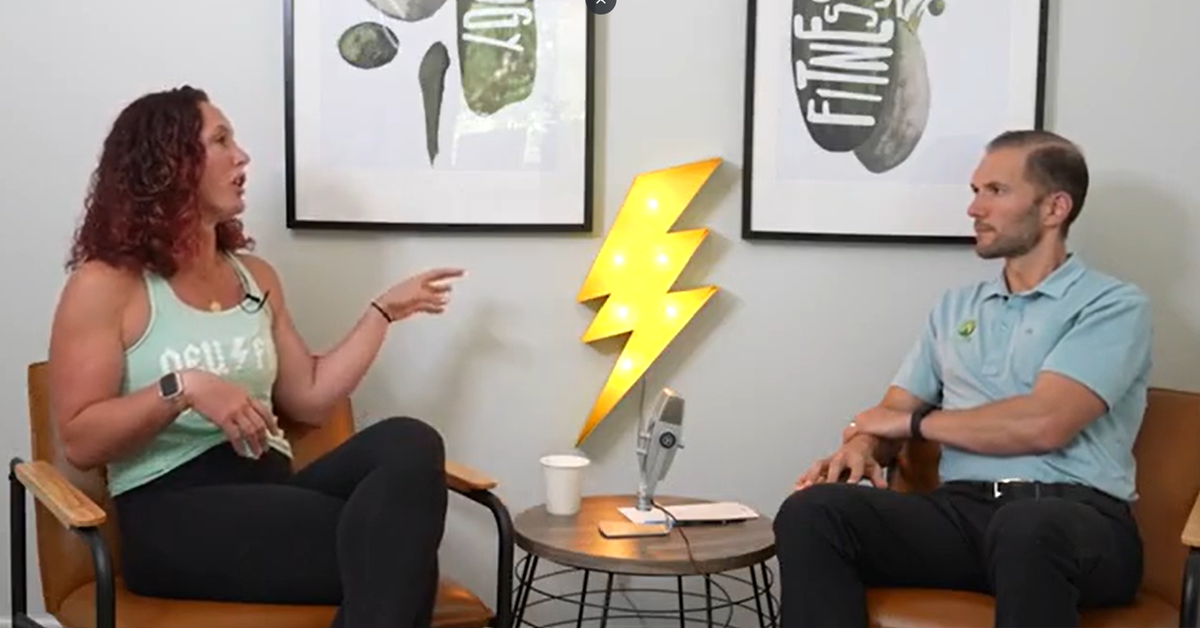THE UNDERCURRENT: ELECTRIFYING RESEARCH WITH DR. ROMONA VON LEDEN, PhD
NeuFit's newly appointed Director of Research, Dr. Ramona von Leden, PhD, is a neuroscientist with a fascinating background in academic research. Dr. von Leden is leading multiple initiatives with us at NeuFit, and we are thrilled to share them with you. Motivated by her mother's spinal cord injury, Ramona immersed herself in neuroscience to gain insights into aiding her mother's recovery.
Having a PhD in neuroscience whilst focusing on traumatic nervous system injuries, inflammation, and age-related recovery. Dr. von Leden's graduate work covered spinal cord and traumatic brain injuries, examining how age affects inflammatory response and recovery. During her postdoctoral work, she studied traumatic brain injury and immune response impacts on cognitive recovery. Her interest began as an athlete and was influenced by my mom's spinal cord injury, which motivated her to seek better solutions than surgery. Romona chose spinal cord injury research for its straightforward outcomes and smaller field size, making it easier to innovate. She studied at Uniform Services University, located on the Walter Reed Navy Medical Base, where she was inspired by seeing injured individuals daily. This motivated her to find effective therapies for recovery.
INFLAMMATION AND SPINAL CORD INJURY
Exploring low-risk, non-invasive options, Dr. von Leden studied how age, inflammation, and immune markers affect injury severity and recovery. Surprisingly, much of spinal cord injury damage stems from the body's inflammatory response, not the initial trauma.
The inflammatory response can become excessive, especially in nervous system injuries. The nervous system, particularly the spinal cord, has more inflammatory cells than neurons, leading to an over-response during injury. This response, meant to protect healthy tissue, can cause further damage by forming glial scars. Once activated, inflammatory cells, like microglia, become hyperactive, continuously attacking the injury site, creating a chronic problem and complicating recovery.
MICROGLIA AND GLIAL CELLS
The spinal cord has a higher ratio of immune cells to neurons, mainly microglia. Glial cells are also present but aren't seen as problematic. Microglia can release pro-inflammatory or anti-inflammatory factors. Ideally, they first release pro-inflammatory factors to address an issue, then switch to anti-inflammatory to reduce inflammation. However, this process isn't always perfect, and inflammation can persist.
ANTI-INFLAMMATORY FACTORS
They're useful, but too much activity can lead to them breaking down healthy tissue and expanding damage. Research around her thesis time showed that not all anti-inflammatory factors are beneficial. With aging, especially after the mid-40s, DNA mutations and cellular changes affect the inflammatory system. Cells become primed, not fully active but not relaxed, leading to hyper-responses to injuries. As we age, our ability to process reactive oxygen species decreases, making antioxidants important. Older cells become "grumpy," overreacting to injuries, which compounds damage. The research showed that spinal cord injuries in older individuals spread more over time compared to younger ones due to this overreaction.
AGING
Excess immune activity can increase spinal cord injury damage. DNA mutates with age; some changes are inevitable, but lifestyle impacts mutation rates. A healthy lifestyle, regular activity, and mindful eating can help manage mutations. Neuroplasticity allows for new cell growth throughout life. Dr. von Leden’s research explored glucose metabolism changes with age, affecting weight and health. Insulin can support glucose metabolism, improving cognitive function and overall health. Non-invasive therapies like intranasal insulin show promise for brain injuries and possibly spinal cord injuries. Metabolism and inflammation are interconnected, and managing them can mitigate aging effects.
WHERE CAN I FIND OUT MORE?
RP-X is the leading provider of the Neubie device in the UK. We have nearly two decades in the space and offer a wide range of turnkey solutions for facilities looking to invest in this technology.
For more information on the device, contact us on info@rp-x.com or 01234 862 762




